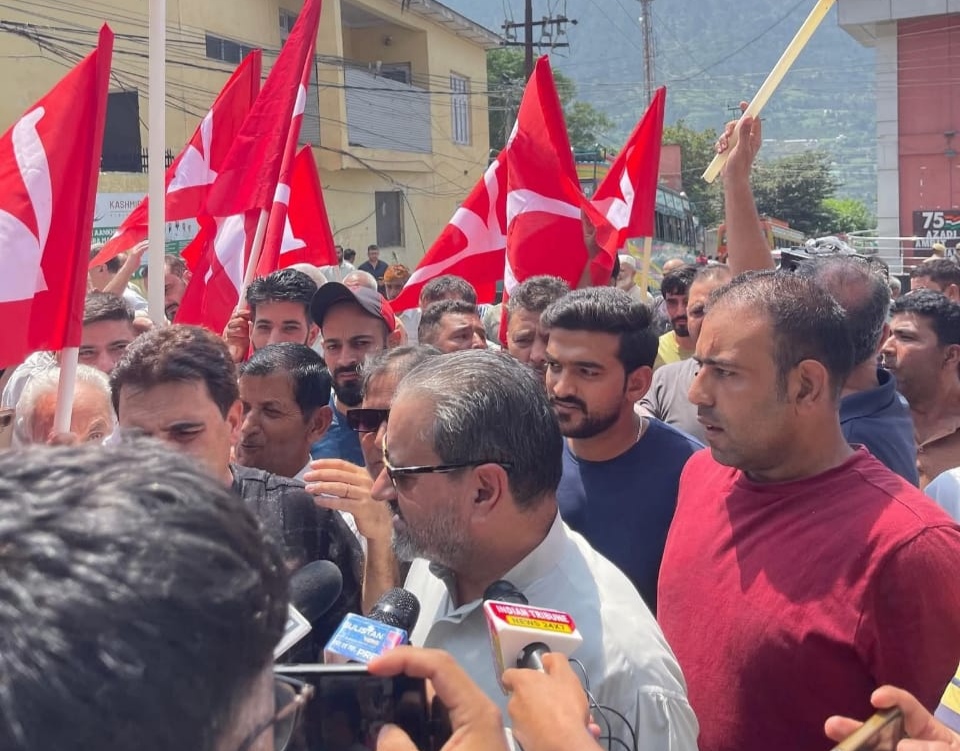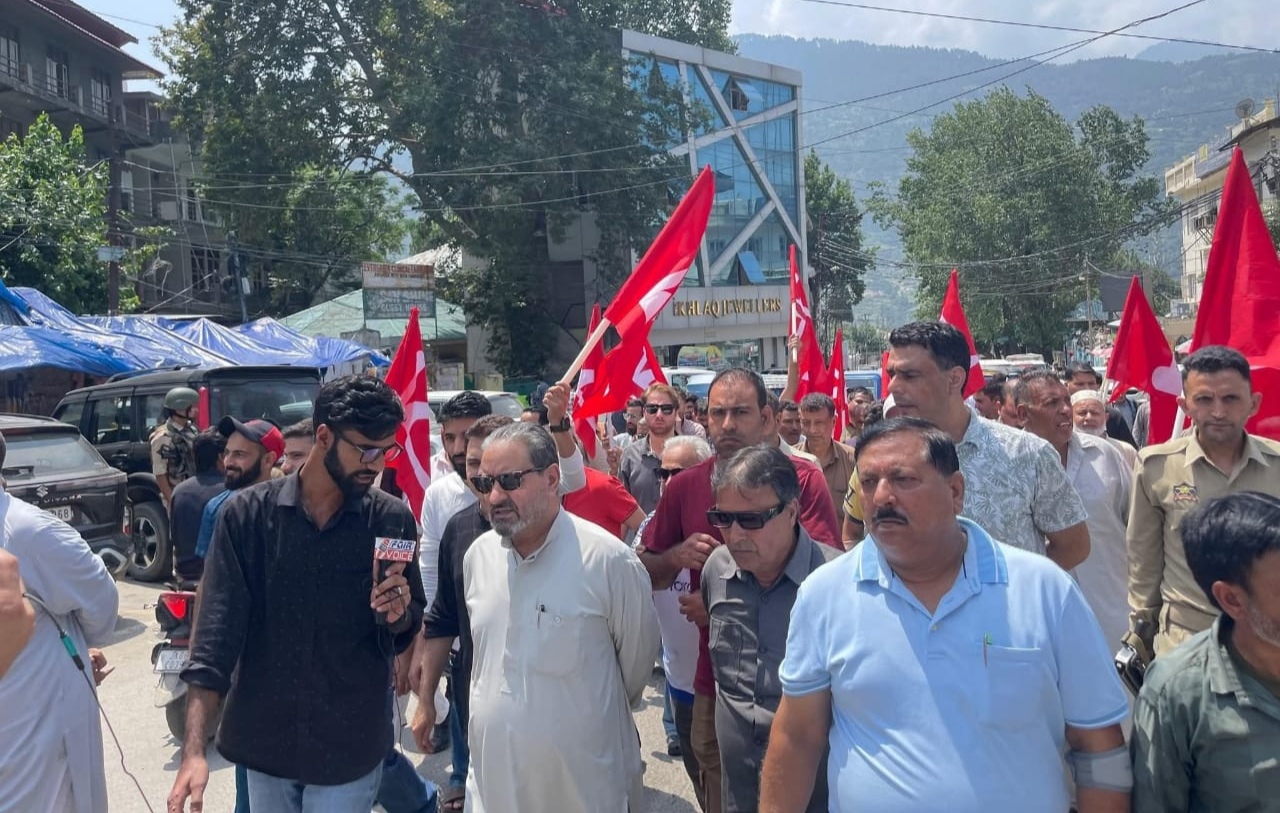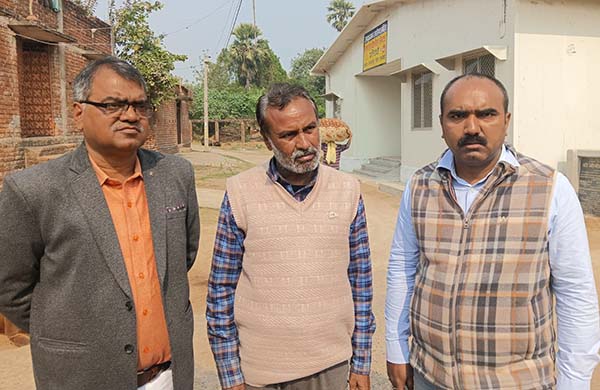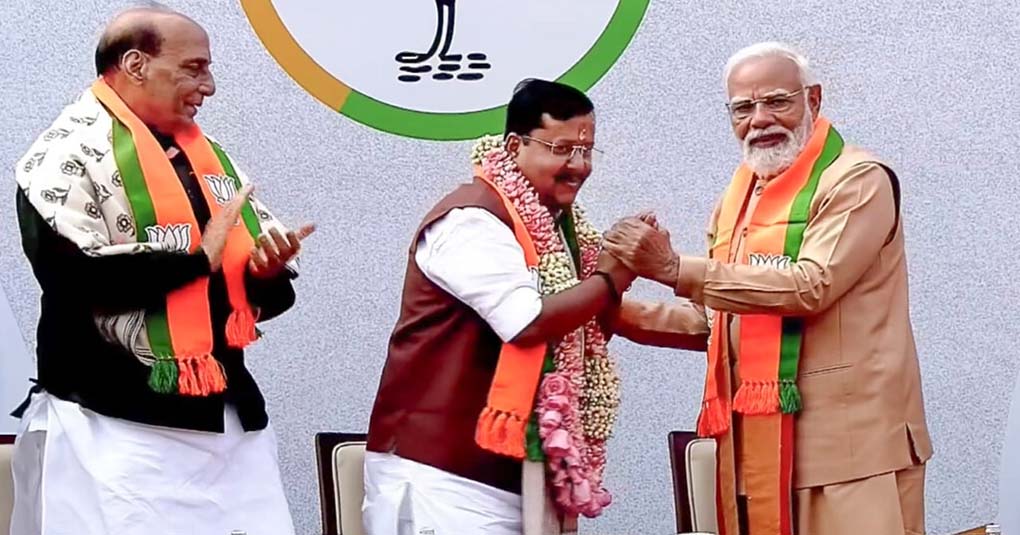Jammu, August 5 : Despite the formal return of electoral democracy to Jammu and Kashmir, a pervasive sense of political estrangement, economic vulnerability, and constitutional disempowerment continues to echo across the region. On Tuesday, peaceful protest rallies were organized in various districts—most notably in Doda—by political parties including the National Conference (NC), currently at the helm of the union territory’s administration. These rallies, though symbolic, reflect deeper undercurrents of public sentiment and long-standing grievances.
Security agencies maintained heightened alert and, in certain areas, curtailed such rallies in view of law and order sensitivities—yet the message found its way to the national conscience.
Democracy Restored, But Trust Deferred
The reinstallation of democratic institutions after prolonged central rule was widely viewed as a turning point. However, for many, particularly in the remote and economically fragile belts of Jammu and Kashmir, substantive transformation remains elusive. The effects of the August 2019 reorganization—particularly the abrogation of Article 370 and 35A—are still felt deeply, not just politically, but socially and emotionally.
Concerns surrounding youth unemployment, developmental stagnation, and infrastructural neglect persist. For a region emerging from decades of conflict, symbolic gestures are no longer a substitute for meaningful, people-centric policy execution.
Between Centre and UT: A Dialogue Missing in Action
While New Delhi continues to project a narrative of development, peace, and investment—often amplified through global summits and infrastructural showcases—the reality on the ground offers a more sobering view. On the other hand, the union territory’s elected government, led by the NC for the past eight months, is yet to fully leverage the institutional authority it possesses.
The central and UT administrations must recognize that responsibility and accountability are shared principles. Mutual silence or selective engagement with public concerns only compounds mistrust.

The Emotional Geometry of Article 370
The public demand for the reinstatement of Article 370 and 35A goes beyond legal frameworks. For many residents, these provisions were emblematic of historical guarantees and regional identity within the Indian Union. Ignoring this sentiment—by branding it as regressive or politically irrelevant—undermines the spirit of democratic engagement.
Restoration, or at the very least, a sincere national conversation about federalism, autonomy, and local aspirations, is necessary. Dialogue does not weaken a nation; it strengthens the legitimacy of its unity.
Geopolitical Context: The Invisible Hand
It is also important to acknowledge the larger geopolitical theatre in which J&K exists. Regional tensions, cross-border dynamics, and shifting global alliances continue to shape the contours of policy in the region. Recent whispers of revived U.S. scrutiny—often tinged with the legacy of the Trump-era economic coercion and trade rhetoric towards India—have only added to the delicate balancing act for both domestic and foreign policy establishments.
While India seeks global leadership in technology, defense, and diplomacy, unresolved internal issues like those in Jammu and Kashmir can become pressure points in international forums—particularly when democratic credentials are questioned.
Rhetoric Must Yield to Responsibility
At this juncture, what the people of Jammu and Kashmir expect is not grandeur in speech, but gravitas in governance. Political leadership—both in Delhi and Srinagar—must now deliver more than electoral victories and ceremonial visits. The need of the hour is a cohesive, inclusive roadmap that prioritizes justice, employment, education, healthcare, and local empowerment.
The region does not seek charity; it seeks dignity.
Democracy, at its core, is not about optics. It is about outcomes. As people continue to voice their aspirations in a constitutional and peaceful manner, it is the duty of the elected and empowered to respond—not with suppression or symbolic politics, but with sincerity, clarity, and action.
Because today, in the valleys and towns of Jammu and Kashmir, one question resonates louder than any slogan: Will those in power finally choose people over politics?
By Mansoor Qadir.



